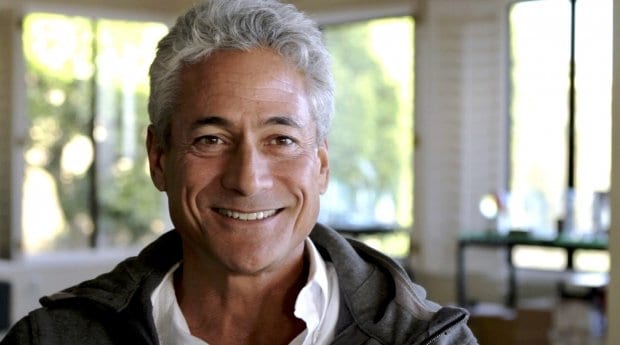It’s easy to forget about the trailblazers as time passes by; some of us never even get to know them. Back on Board sets out to make sure we don’t forget Olympic champion Greg Louganis.
After director Cheryl Furjanic reached out to Louganis to let him know that people 27 and under didn’t seem to know who he was, they decided to make a documentary that would change that.
Released this past summer, Back on Board is screening at St Michael’s College in Toronto on the evening of April 22, as part of a partnership between the Bonham Centre and Inside Out, Toronto’s annual LGBT film festival. Both Furjanic and Louganis will be in attendance for a question and answer session.
“It was an incredible journey. We didn’t know where it was going to go,” Louganis says of making the film.
What it did was document his life as a diver and his return to that world.
Louganis is a four-time Olympic gold medal winner. He won back-to-back gold in the springboard and platform categories in the 1984 and 1988 Olympics. Notably, in the 1988 games, he competed while HIV-positive. It seemed only natural that, as a proven winner, he would be a part of the sport’s future, even after he retired. But that was not the case.
It was only in 2010 that Steve Foley, the USA Diving high performance director, reached out to Louganis about becoming an athlete mentor — a position he accepted. Foley, as part of the Australian team, competed against Louganis in the Olympics. The two had remained friends long after the games.
“He reached out to me and he said, ‘How do we get you back into diving?’ And I said, ‘Ask,’” Louganis says. “He goes, ‘You’ve never been asked?’ I said, “No, nor have I ever felt welcome.’”
That feeling goes way back.
Louganis came out to himself in college, and his close friends and family knew about his sexuality. So did USA Diving, the national governing body of diving in the country. But for some of his teammates, his sexuality was an issue.
“We’re a small team, and nobody wanted to room with a fag,” he says, explaining that he often roomed with coaches.
After his wins at the 1984 Olympics, he signed with the William Morris Agency. “Their counsel was, ‘Well, keep the gay thing down.’” And so he did.
“It was just my personal policy not to discuss my personal life with members of the media.”
In 1995, however, he came out on The Oprah Show as both gay and HIV-positive. That same year, he recounted his story in his book Breaking the Surface. It spent five weeks at number one on The New York Times bestsellers list.
Despite his successes, Louganis’s reality wasn’t filled with riches. He was actually close to losing his home.
“Whenever you sign contracts with big corporations, there’s a morals clause,” he explains. Being gay had damaged his relationships with sponsors; the only one that stood behind him was Speedo.
In Back on Board, he’s open about those tough times. “That’s how I viewed the film – by showing my weaknesses, I’m showing my strengths,” he says.
His strengths have taken the lead. Louganis played his part, mentoring athletes in preparation for the 2012 Olympics. He gave back. And on April 23, his efforts and legacy will be noted — he’ll be honoured at the 2015 Bonham Centre Awards Gala, alongside fellow Olympians Mark Tewksbury and Marnie McBean.
All in all, there are more people on board with Greg Louganis than there have ever been.


 Why you can trust Xtra
Why you can trust Xtra


